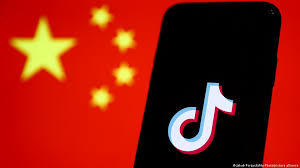In response to growing concerns from Western officials over the Chinese-owned video-sharing app, Canada said on Monday that TikTok will be banned from all government-issued mobile devices.
Justin Trudeau, the prime minister, indicated that it might be the final move or merely the beginning of additional action.
“I anticipate that many Canadians, from businesses to private citizens, will think about the security of their own data and possibly make decisions as the government takes the big step of not allowing TikTok on work phones for all federal employees,” said Trudeau.
I’ve always supported arming Canadians with the knowledge they need to make the best decisions possible, he continued.
The executive body of the European Union announced last week that as a security precaution, TikTok has been temporarily blocked from employee phones.
The EU’s measure comes after comparable actions in the US, where Congress and more than half of the states have banned TikTok from official government devices.
An investigation to see if the program conforms with Canadian privacy laws was announced last week by Canada’s federal privacy watchdog and its provincial counterparts in British Columbia, Alberta, and Quebec.
Young people love TikTok, but because it is owned by China, there are concerns that Beijing might use it to gather information on Western users or spread false information and pro-China narratives. ByteDance, a Chinese business that relocated its headquarters to Singapore in 2020, owns TikTok.
Europe and America are increasingly scrutinizing TikTok’s security and data privacy practices due to concerns that the software might be used to spread pro-Beijing ideologies or collect user data. It happens at a time when China and the West are engaged in a larger technological arms race including everything from surveillance balloons to computer chips.
According to Mona Fortier, president of the Canadian Treasury Board, the federal government will also prevent further downloads of the app on authorized devices.
The Chief Information Officer of Canada found that it “presents an unacceptable level of danger to privacy and security,” according to Fortier in a statement.
On Tuesday, the app will be taken off of phones provided by the Canadian government.
Fortier stated that “TikTok’s data collection methods on a mobile device allow significant access to the contents of the phone.”
Although there are risks associated with utilizing this program, there is currently no proof that sensitive government data has been compromised.
Recent media stories have also sparked worries about possible Chinese meddling in recent elections in Canada, leading opposition parties to demand a public investigation into claims of foreign election meddling.
After similar bans were implemented in the EU and the US, a spokesperson for TikTok wrote in an email, “It’s curious that the Government of Canada has moved to block TikTok on government-issued devices—without citing any specific security concern or contacting us with questions—only after similar bans were implemented in the EU and the US.”
According to the statement, the business is always willing to talk about Canadians’ security and privacy. The email stated, “Singling out TikTok in this way accomplishes nothing to achieve that shared purpose.” “What it does is stop public servants from communicating with the public on a platform that is cherished by millions of Canadians.”

















